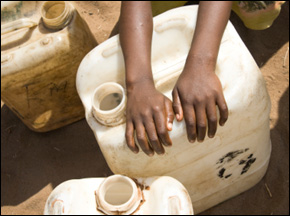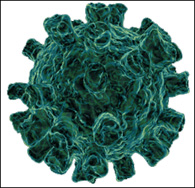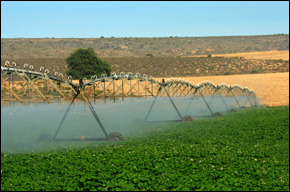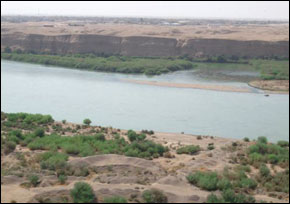UNICEF, WHO Report Says 1.5 Million Children Die Annually from Diarrhea; New Response Plan Launched
 An estimated 1.5 million children under the age of five die from diarrhea each year -– more than AIDS, malaria and measles combined — according to a joint UNICEF-WHO report. The organizations hosted a teleconference today, featuring a panel of experts, to introduce the report.
An estimated 1.5 million children under the age of five die from diarrhea each year -– more than AIDS, malaria and measles combined — according to a joint UNICEF-WHO report. The organizations hosted a teleconference today, featuring a panel of experts, to introduce the report.
The report, Diarrhea: Why Children are Still Dying and What Can Be Done, which reintroduces grim and widely understood statistics, launches a new 7-part prevention and treatment plan aimed to rekindle the fight against the water-borne disease. Part of the strategy includes distributing a recent WHO-approved vaccine for rotavirus, the number one cause of severe diarrhea among infants and young children.
The U.N. organizations hope to target developing areas like Africa and South Asia, where more than 50 percent of the cases occur. But the price of the vaccine and understaffed, overstretched national health departments are major regional obstacles, according to Dr. Carsten Mantel a WHO Medical Officer for the Expanded Program on Immunization Plus.
“Only 39 per cent of children with diarrhea in developing countries receive the recommended treatment, and limited trend data suggest that there has been little progress since 2000,” states the report.
Improving water quality and quantity as well as hygiene practices, especially hand washing, are “extremely” effective methods of fighting diarrhea in these areas, according to Elizabeth Mason, WHO Director of Child and Adolescent Health and Development.

But 1 billion people still lack proper access to water. And mounting climate change will likely cause more cases and further complicate treatment of diarrhea in developing countries.
According to Valuing Climate Change Impacts on Human Health: Empirical Evidence from the Literature, a report published by the International Journal of Environmental Research and Public Health, in February, “developing countries will bear almost all the projected additional costs” of adapted treatments. Total worldwide cost for diarrhea treatment by 2030 could reach up to $9 billion if CO2 levels go unmitigated or up to $6 billon if they remain at 550ppm.
WHO and UNICEF officials hope this new agenda will tackle the multi-layered problems that worsen global child mortality rates.
“Water and sanitation are so integrally linked to the diarrhea issues,” said UNICEF Executive Director, Ann M. Veneman.
“We need to focus on all these areas – it’s critical to accelerate the progress.”










I think why people discuss malaria and AIDS in Africa more than diarrhea is because they probably kill more people and they can be contagious while diarrhea can’t.
Malaria and AIDS are more widley known because of all the media attention they get. like having AIDS awarness day and stuff like that when no one even notices diarrhea when it kills alot of children.
i think that more children die everyday because of diarrhea in Africa than any part of the world, because the lack of education their parents have. because their parents grew up knowing that diarrhea is a normal thing that happens to everyone but sadly they do not know its consequences, that is why they affect themselves and their children. also i think that malaria and aids are widely discussed because it grabs people attention more than “diarrhea” so they become more aware of it.
I believe that people die from diarrhea more than AIDS because their are AIDS awareness advertisement and it get much more attention while diarrhea no one tries to show the people how to prevent it so people get it more than AIDS because not like AIDS for example they can decrease the possibility of getting it with Condoms.
I believe that both AIDS and Diarrhea are very threatening to everybody and that something has to happen what ever it be to help both of these diseases to have more awareness and especially diarrhea because AIDS has some recognition.
Diarrhea became more threatening than AIDS and Malaria to people; this is because there is more contamination in food and water also the air, which is the main contributor for having diarrhea, and this can cause viral and bacterial infections and mostly food poisoning that lead to death sometime especially in infants and children.